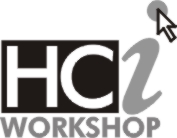|
Faculty |
|
Punam Medh, iDesign Skills and Prof. Anirudha
Joshi, IIT Bombay, will conduct the workshop.
Punam Medh has been practicing ID for over 15 years in
her career as a trainer, course designer and e-learning specialist. She
manages iDesign Skills—an ID consultancy specializing in ID training and ID
consulting. She has trained and consulted with several IT majors on using ID
principles to enhance the training effectiveness within their training
departments. She also works closely with schools on applying ID practices to
enhance pedagogical practices, especially in the area of Learning
Disabilities.
Anirudha Joshi is a faculty member in the Industrial
Design Centre, IIT Bombay. He teaches and does research in the field of
interaction design. For many years now, Anirudha has been conducting courses
on Human-Computer Interaction for students and working professionals. He has
also been a consultant to several IT companies on HCI projects. His area of
research interest is interaction design for needs of developing countries
like India and overlap between software engineering and HCI. Before
joining IIT Bombay, Anirudha worked in the field of interaction design for
software, multimedia and the Internet. Anirudha has a BTech in Electrical
Engineering and a Masters in Design in Visual Communication from IIT Bombay. |
|
|
Fees |
|
|
Working Professionals |
Educational Institutes |
Early
(closed)* |
Rs. 7,000 |
Rs. 3,500 |
Late
(closed)* |
Rs. 8,500 |
Rs. 4,500 |
Walk-in
(closed)* |
Rs. 10,000 |
Rs. 5,000 |
* The workshop is full, and hence we are unable to accept additional
nominations at this time. However, if you drop us an email (anirudha[at]iitb.ac.in)
we will be happy to inform you of future workshops.The fees include participant material, lunch and refreshments.
Accommodation is not included, but may be available to limited number of
people in the IIT Bombay guesthouse. To attend the workshop, please send a
cheque / DD in favor of ‘Registrar IIT Bombay, CEP account’ to: Anirudha
Joshi, Industrial Design Centre, IIT Bombay, Mumbai 400 076. Please note
that TDS need not be deducted towards payments made to IIT Bombay. For
further information please contact anirudha[at]iitb.ac.in.
|
|
